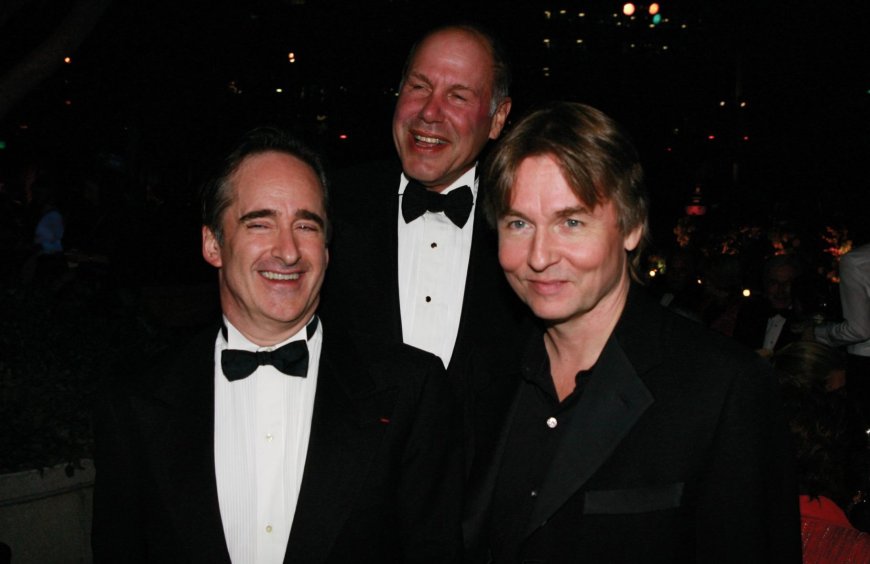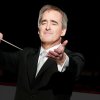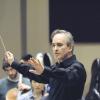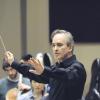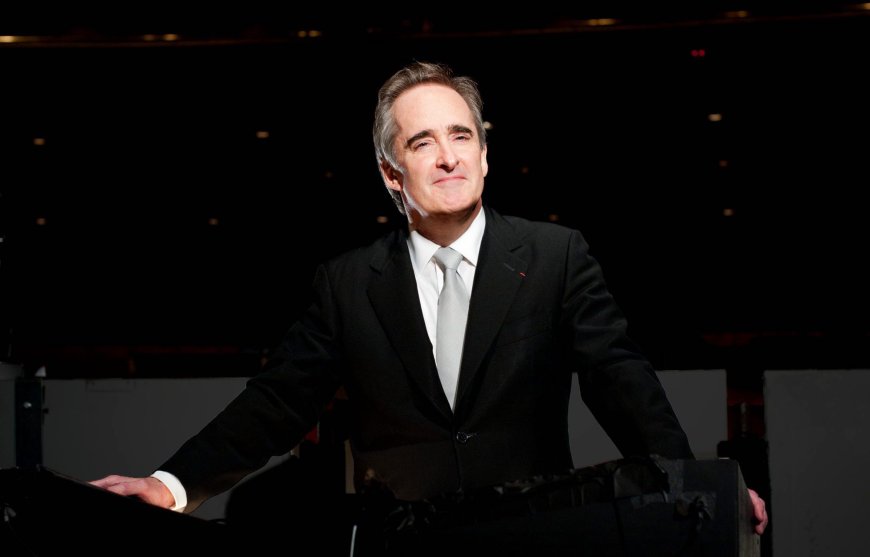
When I sat down with James Conlon, Music Director and Principal Conductor of Los Angeles Opera, it was the morning of the piano run-through for the company’s production of West Side Story. Right from the start, he wanted to make one thing crystal clear:
“I am not retiring — that’s a rumor that has taken on a life of its own,” Conlon said. “On March 13, 2024, I said, ‘It's been 20 years and I'm going to stop now. We're going to celebrate my 20 years as music director along with the company's 40th anniversary. I've had a great time and it's time to pass this on to other people. I want to stop while I'm at my height.’
“I swear, 80 percent of the people I talked to after that said they were so sorry to hear I was retiring. That's all anybody heard. I am absolutely not retiring! I am simply leaving a post I have held for a long time.”
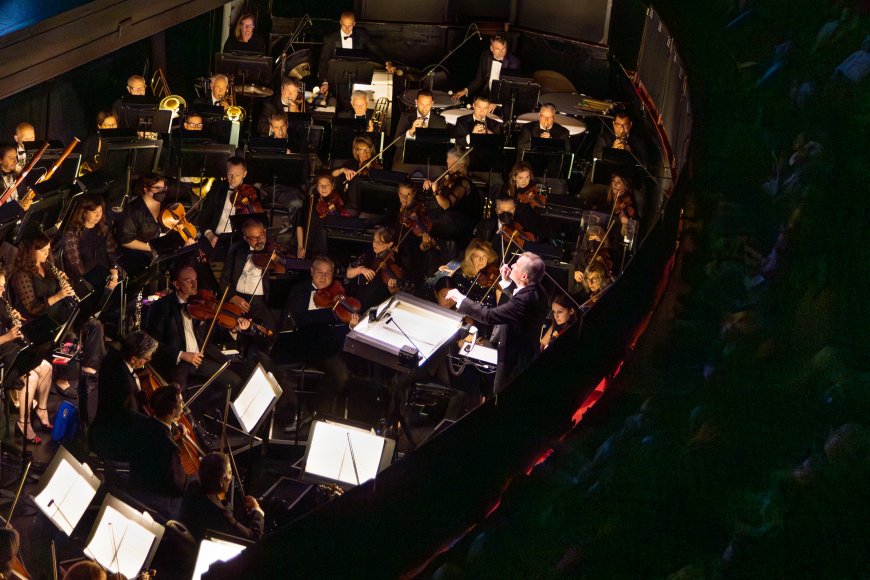
Conlon, 75, pointed out that he has spent the last 47 years as a music director — first with the Cincinnati May Festival starting in 1979, then with the Cologne Opera starting in 1989, and with the Los Angeles Opera since its 2006-2007 season.
“The only time I've spent an entire year without getting on an airplane was during COVID,” he recalled.
A lot has happened during Conlon's 20 years with LA Opera, most of it good. His journey with the company began when the company's president and CEO, opera singer and conductor Plácido Domingo made him an offer. “At the point I came to LA Opera, I had just gotten rid of two enormous jobs and was looking to cut back,” Conlon recounted. “My goal was to only have to work 10 months a year. That's what I told Plácido.”
Conlon’s conditions for taking the job were that he would conduct a range of repertory, especially Wagner, and that he would institute Recovered Voices, “a series of concerts and performances that would shine a spotlight on works by neglected composers whose careers, and ultimately their lives, were destroyed by the rise of Nazi Germany and the ensuing Holocaust.”
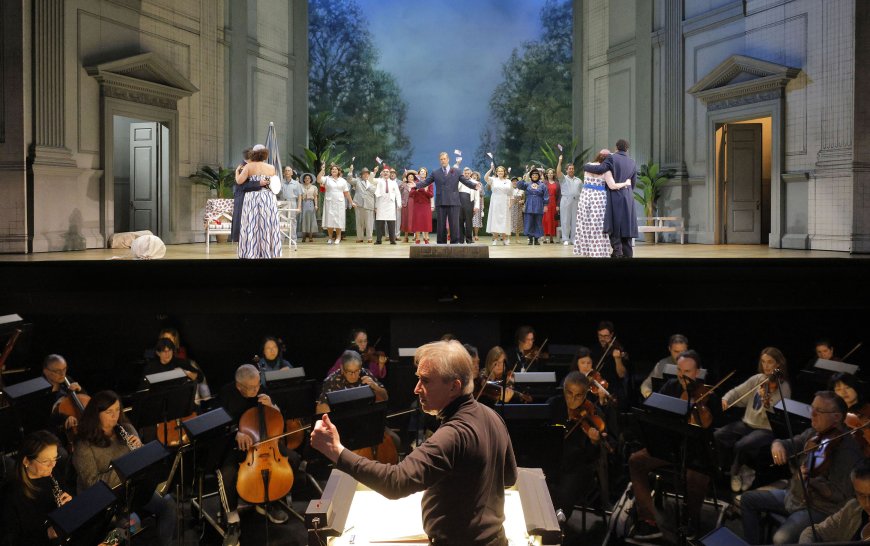
For his inaugural season, Conlon led a stellar lineup of productions: Verdi's La Traviata and Don Carlo, Wagner's Tannhäuser, Kurt Weill's The Rise and Fall of the City of Mahagonny, two performances of Benjamin Britten's Noye's Fludde, and the premiere of Recovered Voices — a semi-staged production of Alexander Zemlinsky's A Florentine Tragedy.
The orchestra musicians quickly appreciated him, and over two decades they’ve bonded. John Walz, the principal cello, remembers LA Opera prior to Conlon’s tenure.
“The LA Opera orchestra, for many years, was a ‘pick-up’ orchestra made up of excellent players, but for more than a decade we saw a stream of guest conductors. It’s not easy to establish a sense of ensemble or unity or, to be blunt, a good center of intonation, in that environment,” Walz said. “With Conlon, we knew we had found a good fit. His knowledge and insight into virtually every score, and the meaning of each musical gesture makes each rehearsal a masterclass. But through all this, he’s one of us. We all look forward to hanging out with him after a performance in the Dorothy Chandler’s restaurant, Kendall’s. He’s even been known to go behind the bar and ‘host.’”
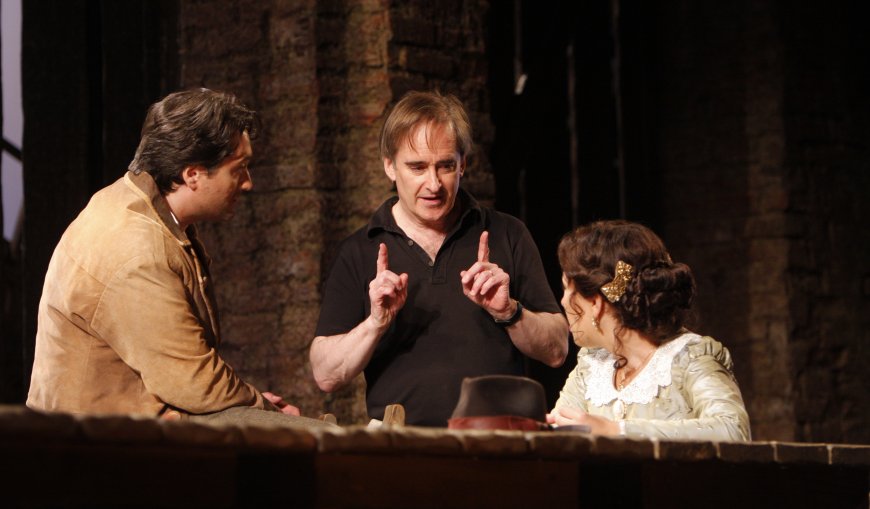
The big story in 2010 was LA Opera's intended presentation of Wagner’s four-opera cycle, The Ring of the Nibelung — a saga that began years before when the company announced a planned collaboration with George Lucas's special effects house, Industrial Light and Magic. This was to be the “Star Wars Ring,” but it never made the jump to lightspeed. In a series of post-mortem interviews, staff members from ILM said that LA Opera had expected a lowered rate for services in exchange for the opportunity to work with an arts organization. “We don't work that way,” was ILM’s response.
The project did not, however, end there. Under pressure from then director of artistic operations, the late Edgar Beitzel, The Ring was passed to German avant-garde director and designer Achim Freyer. Conlon conducted the full production between May 29 and June 26, 2010. It was a financial disaster that would hinder the company for years. The company took another financial hit from the COVID shutdown, from which it is still recovering.
Throughout his tenure, Conlon has shown an athletic ability to shift gears — a skill especially useful for 20th-century and contemporary scores like John Corigliano’s The Ghosts of Versailles, Jake Heggie’s Moby Dick (both seen in L.A. in 2015), and West Side Story.
“My job is always to convey what's there in the score,” he said. “I have my body and my gestures.”
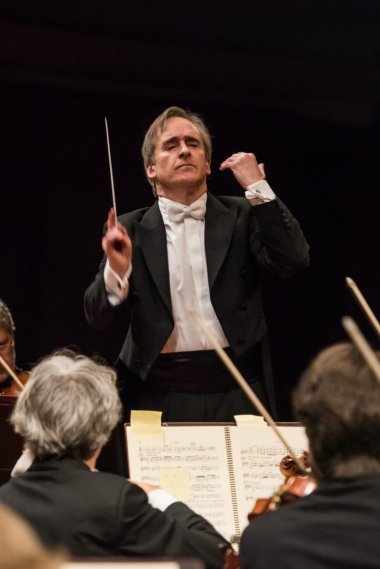
Conlon was reluctant to express an opinion about the current political relevance of West Side Story. But he pointed out how outspoken Leonard Bernstein was about the demonization of minorities, and how the composer came within a hair’s breadth of being called before the House Un-American Activities Committee.
Viewed through a wider lens, Conlon cited the dangers of censorship and rewriting history to fit a political agenda.
“The need to understand history is critical,” Conlon emphasized. “It's one of the reasons Recovered Voices is so important. Throughout history, powerful regimes up to the current day have distorted historical facts to their advantage. I have a deep concern that the general population, especially young people, do not have the knowledge of history — domestic, and particularly international — that they should. We are seriously endangered by that.”
It's a fascinating coincidence that James Conlon, who plans to conduct LA Opera performances on a regular basis as conductor laureate, finds himself in the same position as his soon-to-be new next-door neighbor (at Walt Disney Concert Hall), Esa-Pekka Salonen. Both maestros have shed the responsibilities of music director in favor of working on individual projects.
“I'm very glad to have Esa-Pekka back,” Conlon says. “He's one of my favorite colleagues.”
It certainly looks like non-retirement is the trend, and a new chapter for classical music and opera in Los Angeles is about to begin.
